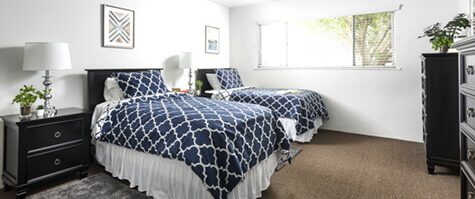Sleep is an extremely important element in our daily lives. According to experts , we should get around 9 hours of uninterrupted sleep to “recharge your batteries” so that we can be energetic, lively, and ready to take on the day ahead. If sleep disorders disrupt our sleeping patterns, or diminish the quantity of restful rest that we receive, it will impact our ability to function effectively in the coming day. Sleep apnea is an example of such condition, and in this article , we’re going to review of snoring and sleep apnea in order to understand how they’re related to each other, the reasons they occur and how they can be treated.
Snoring can be a sign of sleep apnea, and is one of the most obvious signs to detect, in fact it’s often the source of confusion between the two partners. However, it does not necessarily mean that if you sleep you’re suffering from Sleep Apnea, but on the other hand, most of those who suffer from what’s called professionally “OSA”, (Obstructive Sleep Apnea) are snorers which means that in this instance sleeping apnea and snoring are interconnected.
Let’s begin by defining the meaning behind OSA. OSA is a term used to describe a condition in which people experience instances where breathing ceases for a brief time (often more than 10 second) in the course of sleep. It alters the pattern of sleep which can alter your sleep pattern However, most of the time the patient does not awake and, therefore, probably not even know of the condition. To understand how sleep apnea and snoring can be related, we must take an in-depth look at the potential causes.
When we’re awake when we are awake, the muscles of the upper throat open the airway which allows us to breathe. While we sleep the muscles in the upper part of our throat relax, however with the majority of people , their airways remain open. However, in some individuals the throat region is smaller and during sleep, it is completely closed, causing an increase in breathing, and the snoring. Sometimes, the breathing ceases for short periods of time, and this is is known as sleep apnea.
In many instances such as the ones mentioned in the previous paragraph, snoring as well as sleep apnea may be identified with the help of your companion. It is common for those suffering from sleep apnea they begin to snore heavily when they fall asleep. If they stop snoring for some time, which is that is followed by a gasp or more frequently, an exaggerated “snort” that means that the breathing stopped, and has resumptuated. This can be extremely annoying for both parties, and for the sufferer of apnea, it can result in excessive drowsiness throughout the day as their sleep patterns are constantly disrupted, even when they don’t wake up.
If you are a person who sleeps alone there may be other signs to be on the lookout to that could suggest that you have snoring issues and sleep apnea. If you do, you could then schedule an appointment for a consult with your physician. The symptoms are:
* Extreme drowsiness throughout the day, and falling asleep unintentionally.
Unrefreshed after a night of sleep.
* Feelings of depression may be a possibility.
* Feelings of fatigue
* Poor memory
* Poor concentration
* Morning headaches
Possible personality change
• Hyperactivity among children
* Severe swelling of the legs
For your doctor to accurately and clearly diagnose snoring and sleep apnea, they will need undergo a polysomnogram (sleep diagnosis). Other tests your doctor might suggest include blood gas analysis of arterial blood as well as electrocardiogram (ECG) as well as echocardiogram and/or thyroid function tests.
There are certain things you can do to stop or reduce snoring or sleep apnea. It is possible to avoid drinking the consumption of alcohol or taking any type of sedation prior to bedtime and putting in a device which moves the jaw forward and losing weight. If these methods fail the doctor might suggest CPAP, (continuous positive airway pressure). There are also a couple of surgical options; UPPP (Uvulopalatopharyngoplasty) which involve removing excess tissue from the back of the throat; a tracheotomy, (very rarely done), or for children, the removal of tonsils.
If treated properly sleep apnea, snoring, and sleep ap can be controlled or eliminated however, many aren’t ready to undergo CPAP because they think it’s too intrusive.
Alternative solutions can include Yoga and breathing exercises that can aid in strengthening the throat muscles enough to stop from causing breathing problems like apnea or snoring. Some individuals find that changing their sleeping positions may help, specifically elevating the upper part of their torso about 30 degrees. This can allow gravity’s force to aid.
It is nonetheless crucial that people suffering from snoring and sleep apnea must try to treat or treat their condition, as it could have severe consequences like cardiovascular disease (sufferers are 30 percent more susceptible to heart attack) as well as the high pressure of blood, strokes clinical depression, diabetes and overweight.
